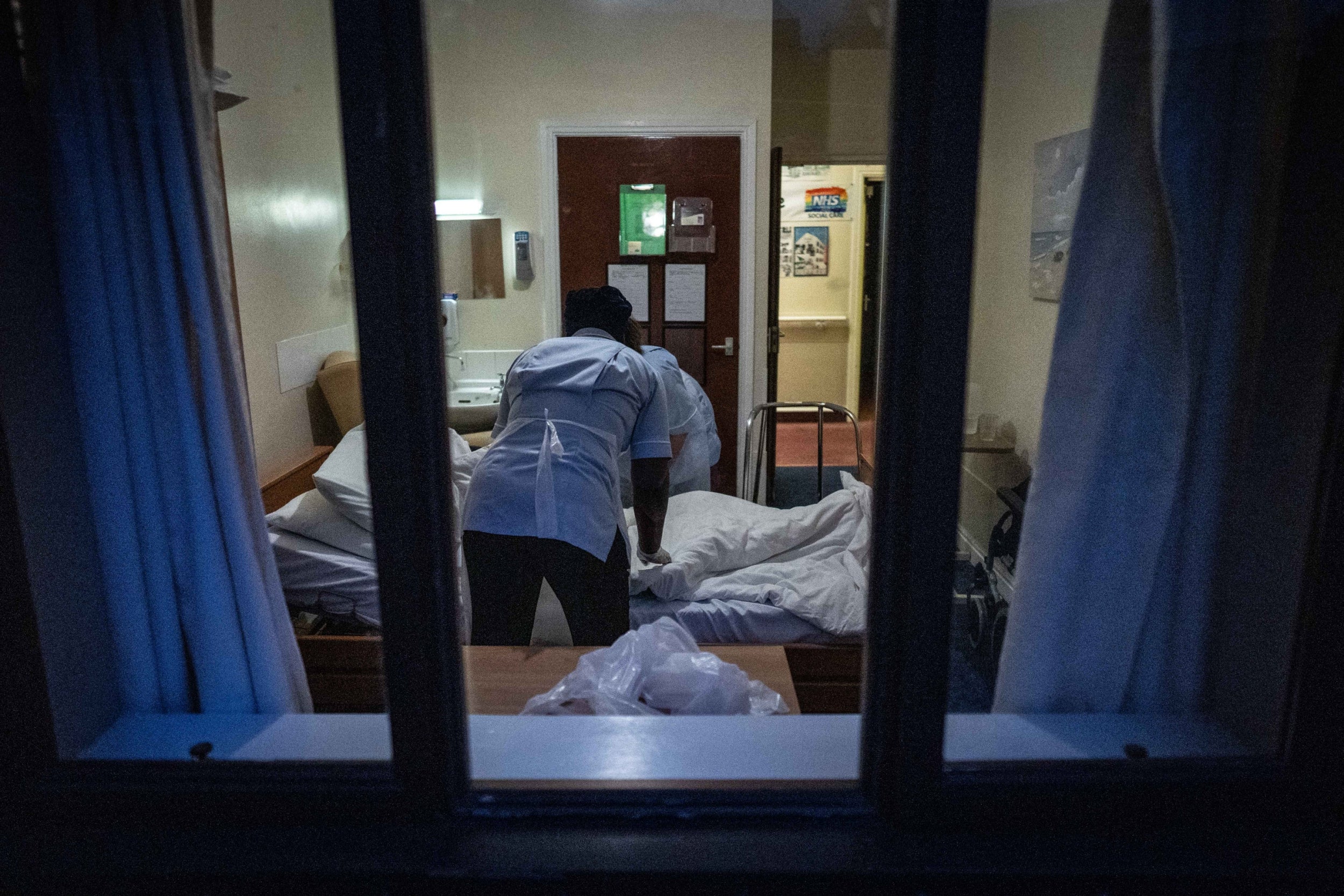Coronavirus: Government’s £600m infection fund for care homes can’t be used to buy protective clothing
Social care leader attacks ‘insufficient, confused and unnecessarily bureaucratic’ fund

Your support helps us to tell the story
From reproductive rights to climate change to Big Tech, The Independent is on the ground when the story is developing. Whether it's investigating the financials of Elon Musk's pro-Trump PAC or producing our latest documentary, 'The A Word', which shines a light on the American women fighting for reproductive rights, we know how important it is to parse out the facts from the messaging.
At such a critical moment in US history, we need reporters on the ground. Your donation allows us to keep sending journalists to speak to both sides of the story.
The Independent is trusted by Americans across the entire political spectrum. And unlike many other quality news outlets, we choose not to lock Americans out of our reporting and analysis with paywalls. We believe quality journalism should be available to everyone, paid for by those who can afford it.
Your support makes all the difference.A £600 million government fund designed to prevent the spread of infections in care homes has been heavily criticised by care leaders who revealed they had been banned from spending the cash on protective masks and clothing for staff.
The infection control fund was announced by ministers earlier this month, but the money has reportedly come with so many strings attached that social care bosses have dismissed it as “confused and unnecessarily bureaucratic”.
Delivering a withering assessment of the fund, James Bullion, president of the Association of Directors of Adults Social Services, said he had “made clear that the funding available is insufficient to cover the real costs being faced by providers and local authorities”.
In a letter to health minister Helen Whately, Mr Bullion, who runs social care services in Norfolk, said care homes were facing considerable costs for personal protective equipment, or PPE, which is designed to help prevent staff from catching the virus.
He said: “The additional funding is for infection control; however, it is not clear why this funding
cannot be used to purchase PPE. We know from the evidence we have gathered the scale of inflated pricing for PPE being faced by providers and local authorities and the real cost of this to local councils. PPE remains the biggest single issue for many local areas.”Mr Bullion added the “conditions being attached to this funding are so restrictive and the reporting so onerous” that care homes and councils were going to struggle to actually spend it, which he said could mean “large amounts of the money going unspent or worse clawed back”.
The government has come under repeated pressure over its handling of the coronavirus crisis in care homes, where almost two fifths of homes have now reported coronavirus outbreaks and deaths have reached a total of more than 11,000.
But the crisis has reached beyond care homes into all aspects of care services, including home care providers.
The infection fund allows councils to spend 25 per cent of the money on home care services. Mr Bullion said: “The implication that this might be sufficient is misleading.”
The letter also highlighted the difficulty of funding care providers who have private paying residents as well as taxpayer funded patients.
This has forced councils into the complex law around state aid, which Mr Bullion said had resulted in a “confused and overly bureaucratic system which makes it difficult for providers to claim and impossible for local authorities to deliver within the required timescales.
“This is creating unnecessary local tensions between providers and local authorities. Providers are already incorrectly blaming councils for flaws in this national system.”
He added: “Proper consideration of real costs in the short term and the long-term funding and reform of social care is more important than ever. The continuity of providers is important for the
continuity of services for the older and disabled people they provide essential care for. Councils have played an incredibly important role in supporting older and disabled people. We have already stated publicly that they need the tools to continue that job — including resources, PPE and testing. Adult social care must never again be considered as an afterthought to the NHS.”A Department of Health and Social Care spokesperson said: “Since the start of this outbreak we have been working closely with the sector and public health experts to put in place guidance and support for adult social care, as a result over 60 per cent of care homes have had no outbreak at all.
"The Department is leading the sourcing and payment of all PPE for the public sector and we have ensured millions of items of PPE are available for social care. Our £600m Infection Control Fund was introduced to tackle the spread of Covid-19 in care homes and can be used to support infection control measures and wider workforce resilience."
Join our commenting forum
Join thought-provoking conversations, follow other Independent readers and see their replies
Comments